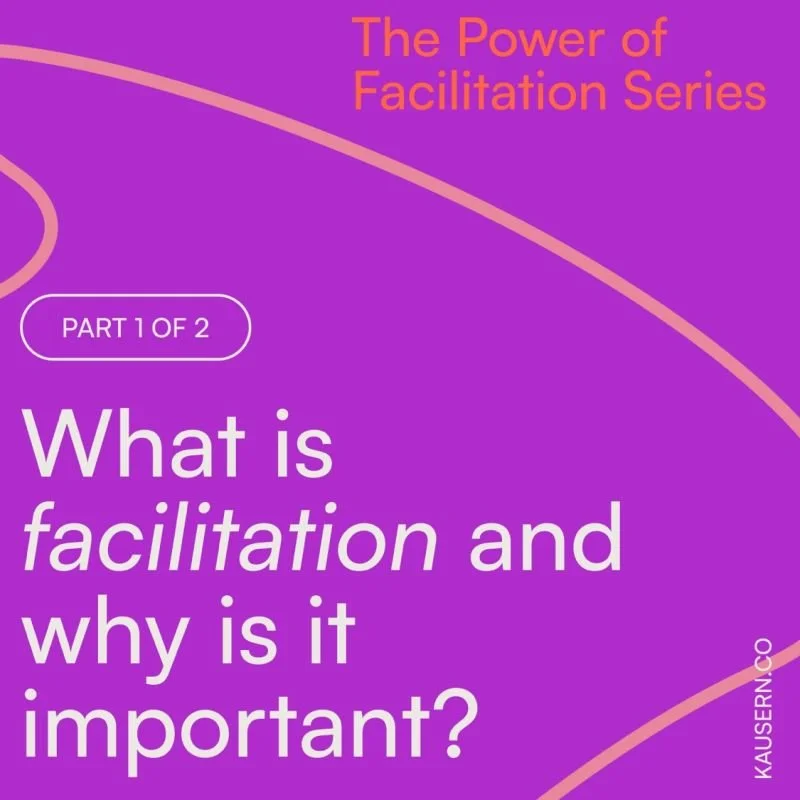Part 1: What is facilitation and why is it important
🎙️In a recent podcast, Adam Grant asked Brene Brown if the word ‘leadership’ didn’t exist, what would she replace it with?
She replied: “Facilitation”
𝐖𝐡𝐚𝐭 𝐢𝐬 𝐟𝐚𝐜𝐢𝐥𝐢𝐭𝐚𝐭𝐢𝐨𝐧?
Facilitation is the process of enabling a group of people to work together more effectively to achieve a common goal. It involves guiding and supporting the group's interactions and discussions, the operative word here being ‘group’.
Facilitation isn’t merely another skill to add to a leader’s repertoire. It forms the foundation of effective leadership, enabling us to guide teams toward the organisation goals, fostering a culture of collaboration and developing individuals in the team.
𝐖𝐡𝐲 𝐢𝐬 𝐟𝐚𝐜𝐢𝐥𝐢𝐭𝐚𝐭𝐢𝐨𝐧 𝐩𝐨𝐰𝐞𝐫𝐟𝐮𝐥?
Facilitation - especially skilled facilitation - is powerful because it unlocks the collective wisdom of the group, leading to higher quality decisions.
For those who’ve been following my thoughts and musings, you’d know that I’m strongly against portraying the leader as the solitary hero. It’s 2023 yet we still have leaders and entrepreneurs who imagine themselves as the rugged hero.
It’s time to consider “the Team as the Hero”. In today’s VUCA (volatile, uncertainty, complex, ambiguous) world, no one individual has all the answers. We need to tap into the collective wisdom of the team to look for creative solutions.
That being said, meetings of large groups of people can be very hard to organise and control when they are in progress, and this is where skilled facilitation comes in.
𝐖𝐡𝐞𝐧 𝐟𝐚𝐜𝐢𝐥𝐢𝐭𝐚𝐭𝐢𝐨𝐧 𝐢𝐬 𝐮𝐬𝐞𝐝?
✅ Making decisions
✅ Idea generation
✅ Learning from each other
✅ Conflict resolution
✅ Strategic planning
✅ Debriefing
✅ Community engagement
I’m certain there are many other scenarios where facilitation can be applied. In my next post, I will be sharing the mindset of a skilled facilitator and the 10 facilitation skills arranged according to the acronym FACILITATE.

